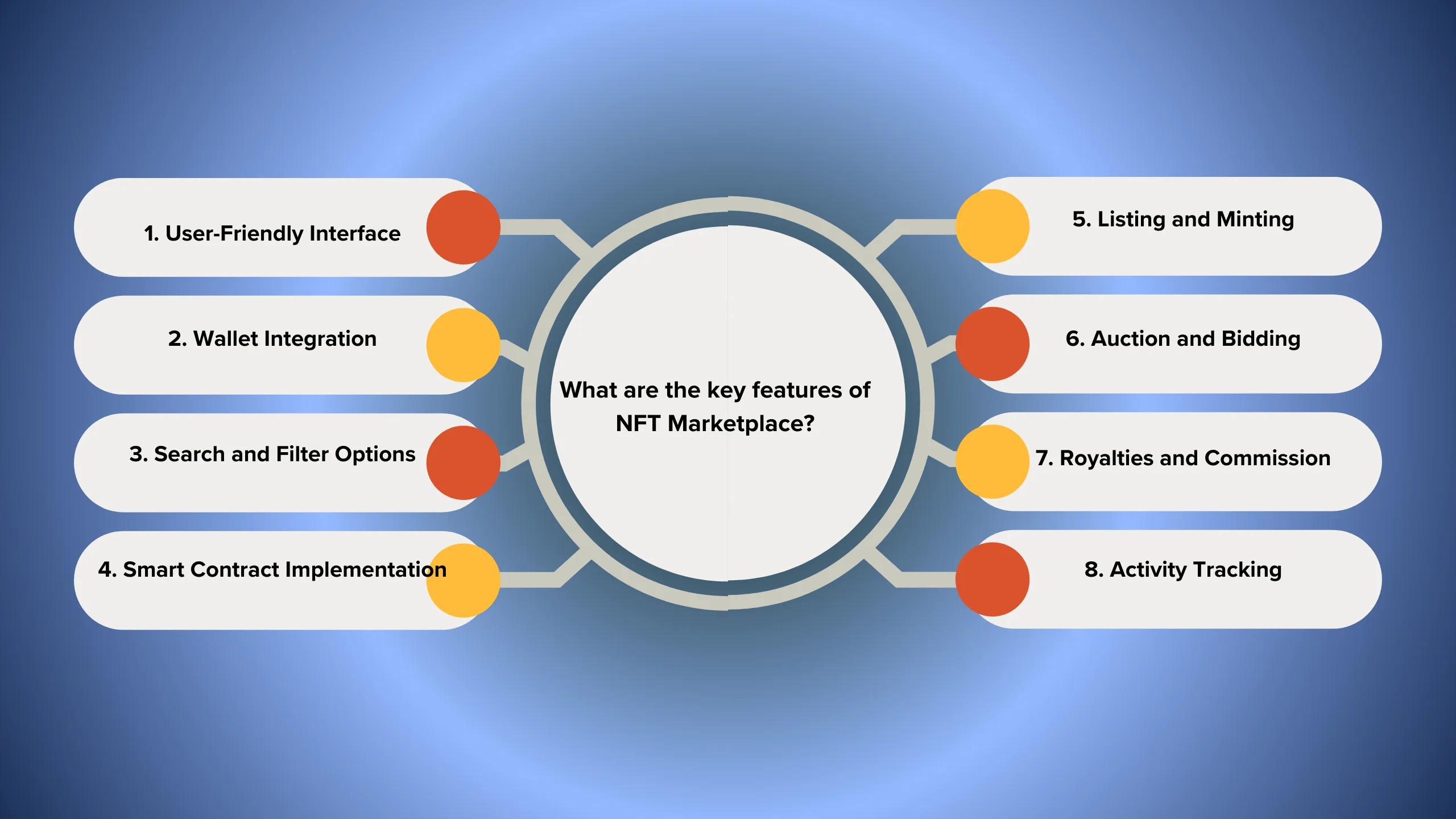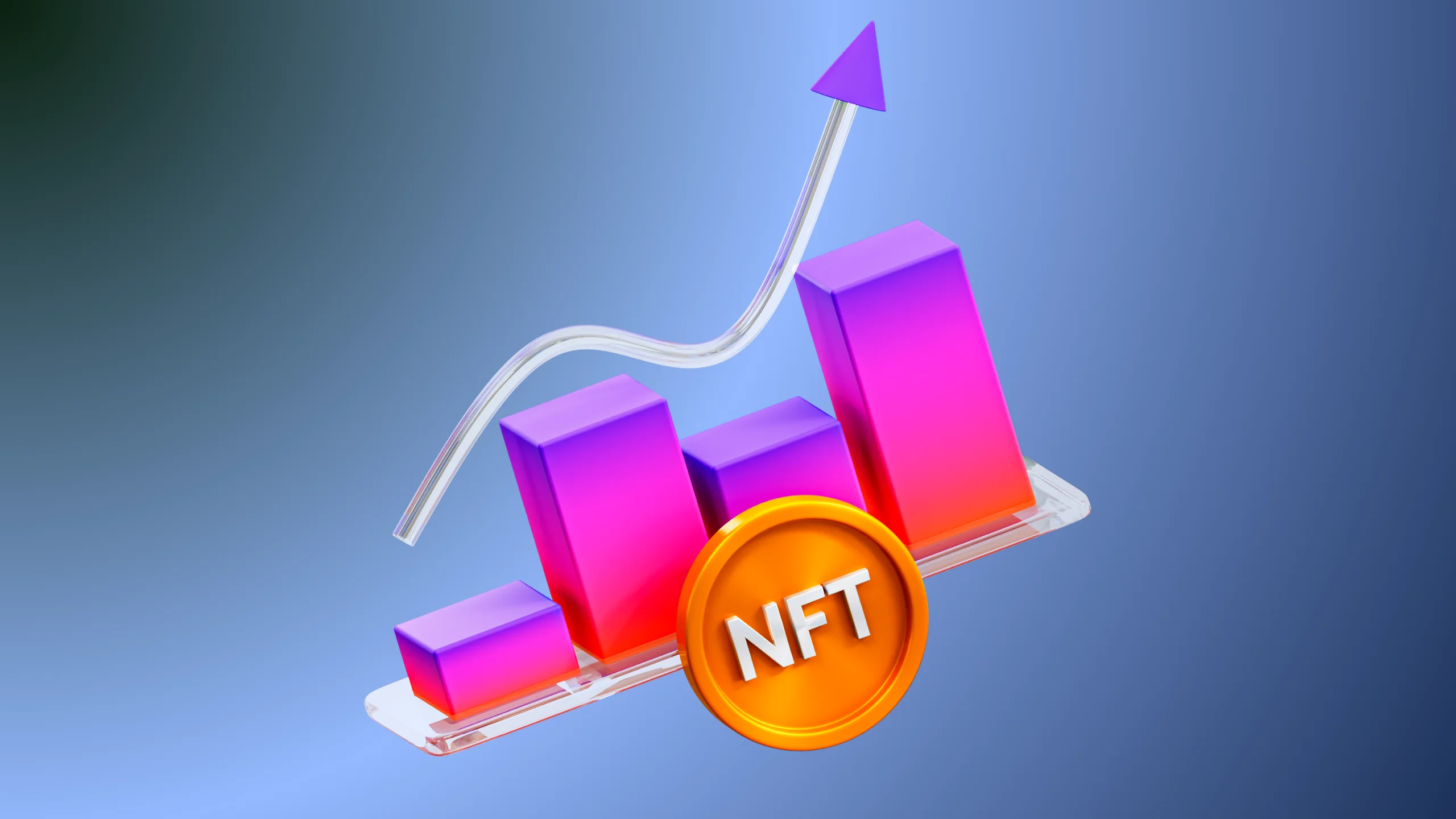Introduction
Building an NFT marketplace successfully demands a strategic approach that combines technical expertise with a thorough understanding of the unique dynamics of the NFT ecosystem and cryptocurrency market making. As the popularity of NFTs continues to surge, creating a standout platform involves meticulous planning, innovative features, and robust security measures. Whether you are a startup or an established business aiming to enter the NFT space, understanding the critical elements that contribute to a thriving marketplace is essential. This guide offers valuable tips and insights to help you navigate the complexities of NFT marketplace development and achieve success in this exciting digital frontier.
What are the best practices for selecting the blockchain platform for your NFT marketplace?
When embarking on the journey of building an NFT marketplace, one of the most critical decisions you’ll face is selecting the appropriate blockchain platform. This decision can significantly influence the functionality, security, and overall success of your NFT marketplace. With the rising popularity of NFTs, creating the best NFT marketplace involves careful consideration of several factors to ensure that your platform stands out in the competitive digital asset landscape.
First and foremost, the choice of blockchain platform underpins the core functionality of your NFT marketplace. It dictates how transactions are processed, the level of security provided, and the scalability of your operations. Given the vast array of available blockchain technologies, it’s essential to thoroughly assess each option based on its capabilities and compatibility with your specific needs. Additionally, leveraging white label crypto exchange software development can accelerate the process, providing a customizable and scalable foundation for your marketplace.
What are the key features of NFT Marketplace?

The key features of an NFT marketplace are crucial for attracting users and ensuring a seamless trading experience. Here are the essential features to include
1. User-Friendly Interface
An intuitive and easy-to-navigate interface helps users browse, buy, and sell NFTs effortlessly.
2. Wallet Integration
Seamless integration with popular crypto wallets (e.g., MetaMask, Trust Wallet) for secure and easy transactions.
3. Search and Filter Options
Advanced search and filtering capabilities to help users find specific NFTs based on categories, creators, price, etc.
4. Smart Contract Implementation
Secure and transparent smart contracts to automate and enforce the terms of NFT transactions.
5. Listing and Minting
Effective liquidity management tools are essential for maintaining a healthy trading environment. Your cryptocurrency exchange script should integrate with external liquidity providers or include features such as liquidity pools and market-making tools to ensure users can execute trades without significant price slippage. These features help sustain a robust trading ecosystem, providing seamless and efficient transactions for users.
6. Auction and Bidding
Support for different sales methods, including fixed-price sales and auctions, to provide flexibility to sellers.
7. Royalties and Commission
Mechanisms to ensure that creators receive royalties from secondary sales, incentivizing them to continue producing high-quality content.
8. Activity Tracking
Real-time tracking of marketplace activities, including recent transactions, trending NFTs, and popular creators.

What are the Steps to Launch NFT Marketplace successfull ?
Launching an NFT marketplace successfully involves several strategic steps. Here’s a comprehensive guide incorporating keywords like “nft marketplace,” “best nft marketplace,” and “nft platform”
1. Market Research and Planning
Conduct thorough market research to understand current trends, user preferences, and competitor offerings. Identify what makes the best NFT marketplace successful and plan your unique value proposition.
2. Choose the Right Blockchain
Select a suitable blockchain network for your NFT marketplace, considering factors like transaction speed, costs, and security. Popular choices include Ethereum, Binance Smart Chain, and Flow.
3. Define Key Features
Outline the essential features of your NFT platform, such as user-friendly interface, wallet integration, minting capabilities, auction and bidding systems, and security measures.
4. Design the User Interface
Develop an intuitive and visually appealing user interface that enhances user experience and makes it easy for users to navigate and interact with the marketplace.
5. Develop Smart Contracts
Create and deploy robust smart contracts to automate transactions, ensure security, and enable features like royalties for creators. Ensure they are audited to prevent vulnerabilities.
6. Integrate Wallets
Ensure seamless integration with popular crypto wallets (e.g., MetaMask, Trust Wallet) to facilitate secure and easy transactions on your NFT marketplace.
7. Implement Search and Filter Options
Build advanced search and filtering capabilities to help users find specific NFTs based on categories, price, creators, etc.
8. Set Up a Listing and Minting System
Enable users to mint new NFTs and list them for sale. Ensure the process is straightforward and user-friendly.
Security Measures in successful NFT marketplace.
In the dynamic world of NFTs, security is paramount. A successful NFT marketplace must incorporate robust security measures to ensure the safety and trust of its users. Here are some key security measures to consider, especially in the context of cryptocurrency market making…
1. Smart Contract Audits
Smart contracts are the backbone of any NFT marketplace. Conducting thorough audits of these contracts is essential. This ensures that there are no vulnerabilities that hackers could exploit.
2. Encryption
Data encryption, both in transit and at rest, is crucial. This protects sensitive user information and transaction data from unauthorized access.
3. Multi-Factor Authentication (MFA)
Implementing MFA adds an extra layer of security by requiring users to provide two or more verification factors to access their accounts.
4. Cold Storage for Assets
Storing NFTs and cryptocurrencies in cold wallets (offline storage) reduces the risk of hacking. This is particularly important for large-scale marketplaces handling significant volumes of transactions.
5. Regular Security Updates
Regular updates to the NFT marketplace software ensure that the platform is protected against the latest threats. This includes patching vulnerabilities and updating libraries and dependencies.
6. Anti-Phishing Measures
Educating users about phishing attacks and implementing anti-phishing technologies can prevent credential theft. This includes features like email verification and secure login alerts.
7. DDoS Protection
Distributed Denial of Service (DDoS) attacks can disrupt the operations of an NFT marketplace. Implementing DDoS protection services can help mitigate these attacks and ensure the platform remains operational.
8. Secure APIs
Ensuring that APIs used for integrating third-party services are secure is crucial. This includes using OAuth for authentication and regularly auditing API usage.
What are the Benefits of Successful NFT Marketplaces?

Successful NFT marketplaces offer numerous benefits that cater to various stakeholders, including artists, collectors, and enterprises. Here are some key benefits
1. Enhanced Revenue Opportunities
NFT marketplaces open new revenue streams for artists and creators by allowing them to monetize their digital artworks directly. This includes earning royalties on secondary sales.
2. Global Reach and Accessibility
NFT marketplaces provide a global platform where artists and collectors can interact, transcending geographical boundaries. This enhances the visibility and market reach for artists, enabling them to showcase their work to a worldwide audience.
3. Ownership and Provenance
NFTs ensure clear ownership and provenance of digital assets. This is particularly important for collectibles, as it provides collectors with the assurance that they own a genuine, authenticated piece.
4. Immutable Records
Blockchain technology ensures that all transactions are immutable and transparent. This builds trust among users, as the history of ownership and transactions is permanently recorded and cannot be altered.
5. Interoperability
Many NFT marketplaces support interoperability, allowing NFTs to be traded across different platforms and ecosystems. This enhances the liquidity and usability of NFTs, benefiting both creators and collectors.
6. Cost Efficiency
By eliminating intermediaries, NFT marketplaces reduce the costs associated with traditional art sales and transactions. This allows artists to retain a higher percentage of their sales revenue.
7. Customizable Marketplace Solutions
Enterprises can benefit from customizable NFT marketplace solutions tailored to their specific needs. These solutions can include branded platforms, custom features, and integrations that align with their business objectives.
8. Secure Transactions
NFT marketplaces ensure secure transactions through smart contracts, which automatically execute terms and conditions without the need for intermediaries. This reduces the risk of fraud and enhances trust in the platform.
Conclusion
Successful NFT marketplaces transform the digital landscape by providing secure, transparent, and accessible platforms for artists, collectors, and enterprises. By embracing decentralized NFT marketplaces, stakeholders benefit from enhanced security and autonomy, ensuring a trustless and tamper-proof environment. Multi-chain NFT marketplace development, combined with a robust cryptocurrency exchange script, further expands the reach and interoperability of NFTs, enabling seamless transactions across various blockchain networks. This flexibility not only increases liquidity but also enhances the user experience by offering diverse options for trading and collecting.
Partnering with a proficient NFT marketplace development company ensures that these platforms are built with cutting-edge technology, robust security measures, and user-centric features. Such companies provide the expertise and resources necessary to develop custom solutions that cater to specific market needs, driving innovation and growth in the digital asset space. By integrating a cryptocurrency exchange script, these companies can also streamline the development process, ensuring a more efficient and effective marketplace launch.
Share a few details about your project, and we’ll get back to you soon.
Let's Talk About Your Project
- Free Consultation
- 24/7 Experts Support
- On-Time Delivery
- sales@sdlccorp.com
- +1(510-630-6507)
